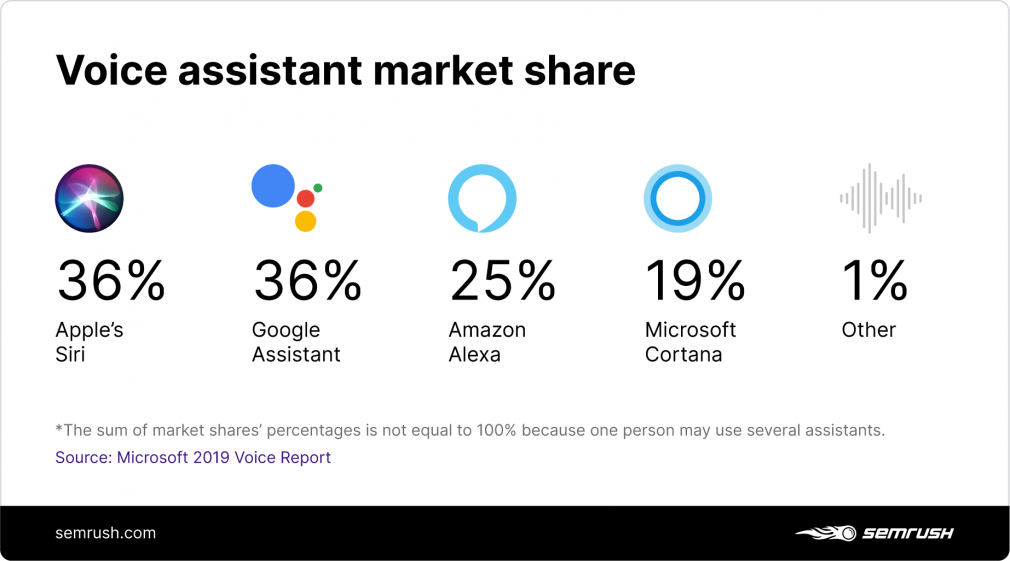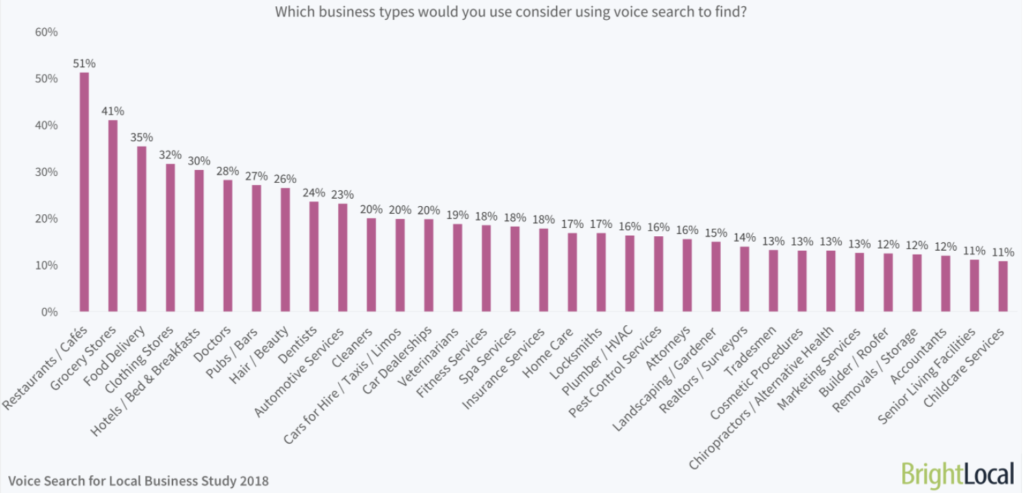Two things tourism businesses can do to take advantage of Voice Search.
It’s likely that many business owners and operators have heard of voice search by now, in fact I’m sure you’ve even used it yourself at least once or twice in the last few months. By far the most common voice search commands are for things like music, weather and solving lighthearted debates between friends but we mustn’t forget the importance that voice search plays particularly for local tourism and hospitality businesses.
With the number of digital voice assistants in use worldwide predicted to reach 8 billion 2023, if you own or operate a local business there really is no time like the present to start taking advantage – and I’m sure you’ll be relieved to know that it’s not all that complicated to get started.
Who’s Who in the Zoo?
When starting to look at how your business is currently represented as far as voice search is concerned, it’s important to have at least a basic understanding of the most popular players:
The most popular voice search assistants and devices are:
- Google with their Home, Home Mini, Pixel phones and other Android devices.
- Apple with Siri in iPhones and iPads as well as HomePad speakers and finally,
- Amazon’s Alexa featured on Amazon Echo devices

What are people searching for when using voice assistants?
Thankfully there has been quite a bit of research into this area – once piece of said research is from Adobe Analytics which showed the most common voice searches are those asking for music (70%), and the weather (64%), followed by fun questions (53%), online search (47%), news (46%), and asking directions (34%).
When focusing on the types of businesses people are searching for, we have stats from BrightLocal showing some of the most popular are restaurants/cafes, food delivery, hotels/B&Bs and other tourism and hospitality businesses.

Now we know exactly what we’re looking at (or rather, listening to) we can move on to the two most things tourism businesses can do today to optimise their audibility in voice search.
1. Optimise local search listings
The two most popular voice assistants, Siri and Google Assistant both use their relevant maps platform to gather local business data to read out or otherwise present back in response to a voice search query – so the first thing you should do as a tourism or hospitality business operator is to ensure your business information is complete and up-to-date on both Google Maps and Apple maps.
Business Information via Navigation Apps
For each of these platforms you should be asking yourself two questions: Do I have a listing and is the information in it 100% correct?
Once you have confirmed your business has a presence on these platforms – you’ll probably be asking – “How do I get my business to the top of the list?”.
Aside from physical location which you are unlikely to be able to do anything about, relevance and prominence are the two key factors that influence which businesses are listed at the top and likely to be read out aloud by a voice assistant.
Relevance is mainly related to your categories and any descriptions that you can add to your listing. Make sure you take advantage of these wherever possible.
Prominence relates to how popular your business is or the perceived quality of the customer experience – so here we’re talking about reviews and ratings. You’re probably already familiar with Google reviews and ratings but don’t forget Apple maps that often pulls in TripAdvisor and Yelp! ratings – the more you can improve the quality and quantity of your reviews, the higher you are likely to appear in maps search results and then of course, to be mentioned with a voice search answer.
2. Publish content that answers specific questions, clearly and succinctly
Overall, if you are already producing content with real people in mind rather than just search engines, you are by default, producing content for voice search as well. There is no secret recipe however there are some common trends we see when looking at the specific paragraphs of written content that end up being used by a voice assistant.
Questions and Answers via Voice Assistants
Speak to your audience when publishing content – whether it be blog or news-style content or more static information pages, how you phrase the information, especially the first paragraph or two can make the difference between having your content read out by a voice assistant.
 Nearly 20% of all voice search queries are triggered by a set of 25 keywords. Some of the most common queries are questions starting with how, what, why, when & where – think of some frequently asked questions that you receive at your business and start answering them – and avoid the urge to get clever with how you word the content – voice assistants and natural language processing technology has certainly come a long way in the last few years but is still a way off being able to ‘read between the lines’ so to speak as an actual human might.
Nearly 20% of all voice search queries are triggered by a set of 25 keywords. Some of the most common queries are questions starting with how, what, why, when & where – think of some frequently asked questions that you receive at your business and start answering them – and avoid the urge to get clever with how you word the content – voice assistants and natural language processing technology has certainly come a long way in the last few years but is still a way off being able to ‘read between the lines’ so to speak as an actual human might.
Struggling for Inspiration? Do some snooping…
The content used in voice search answers are commonly also the featured snippets that we see on a desktop or mobile search. We know that Google relies heavily on knowledge graphs and rich snippets to answer voice queries so look at existing featured snippets for ideas for content that might already be featured in a voice search answer – can you do a better job of answering that question?
So, there we have it – the two most important and immediate things local tourism businesses can do to prepare and win in voice search!



